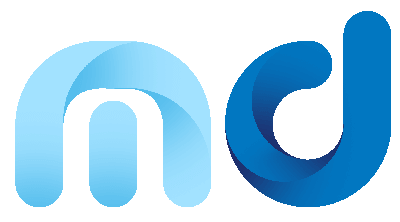Interview answer frameworks.
Career Transitions
Author - Mat Daniel
My favourite interview answer frameworks.
Interviews are an ever-present part of our careers. Early stage doctors apply for training or F3 roles, and senior doctors might want to change jobs or apply for additional roles that are awarded on the basis of an interview. We all have experiences, strengths, and values, and succeeding at the interview requires us to package and present this in a way that is clear, comprehensive, and tailored to the role being applied for.
It is worth having about seven "stories" to talk about. In the interview, you won't know in advance what will be asked, but if you are prepared with several stories you can adjust them and tell them from the angle that the question dictates.
As doctors, for the most part we are not great at selling ourselves. However, it's worth reminding yourself of two things. 1: If you don't sell yourself, you won't get this job. 2: If you don't get this job, you won't be able to have the impact that you want to have. Perhaps it is useful not to think of interviews as selling yourself, but instead thinking about demonstrating the impact that you have had and want to have.
My favourite answer frameworks for use in interviews are below.
Summary of career
In senior doctor interviews, you are likely to get asked to summarise your career to date. This isn't an exhaustive regurgitation of the CV, but should be a 3-5 minute summary of your key roles and achievements, tailored to the role that you have applied for. Remember that the panel may not have seen your CV / application form, and even if they have, they might have forgotten it. So start with the assumption that they know nothing about you.
You have two broad choices when describing your career to date. You can tell a broadly chronological story of your life, highlighting key achievements at each stage, or you can follow the CAMP mnemonic:
+clinical
+academic
+management
+personal
Don't be afraid to talk about the personal, because personal links to an organisation, cause, or topic is often powerful evidence of commitment.
Personally, I prefer the life story approach to CAMP, because the danger with CAMP is that you end up saying "and i have management, and I have education, and I have clinical..." and it just doesn't seem to flow the way a life story does. But everyone is different, so practice both approaches and decide what works for you. If you tell your life story, then remember to include all the aspects of CAMP at some stage in the story.
Demonstrating impact
This framework is:
+I did A (to overcome a challenge)
+which resulted in B (the desired outcome)
+that shows I'm capable of C (talk about your personal qualities)
+and I can help you with D (link your personal qualities to the job you are applying for, showing how you can help the interviewers solve their challenges)
This is a great way to identify and express the transferable skills that you have to offer the interviewers. Usually applicants only do parts A and B, but adding part C and D is a way of highlighting what you offer in an easy to understand way. It's useful for talking about your past experiences.
Giving an opinion
This framework goes
+facts
+implications
+options
+opinion
This is a great way to talk about how you might do something in the future. When asked to give an opinion, there is a danger that the candidate jumps straight in view a suggestion without considering the wider context, or that the candidate talks a lot about context and principles but doesn't actually give an opinion which is what the interviewer wanted. This framework helps you remember the importance of both the big picture and context, as well as giving your own opinion. Involving multiple stakeholders is particularly useful when being asked to give a view.
Reflecting on experience
The ability to reflect on experiences is a key part of being a professional, and highly valued in interviews.
One reflective framework goes
+event
+action
+evaluation.
This is a reflective way to talk about an experience. The key is in the evaluation rather than just describing what happened. Another reflective framework takes this even further:
+what (happened)
+so what
+now what
Again, this moves beyond just describing what happens, there is evaluation (so what) as well as changes in the future (now what). Whenever reflecting, there should be more than just describing, there needs to be an evaluation of what this means and what assumptions have happened, as well as (if appropriate) future changes.
Another reflective framework is STARRR:
+situation
+task
+action
+results
+reasoning
+reflection
This spends a bit more time on the actual event and its description and actions taken there and then, but in my view this is more descriptive rather than reflective as reflection is only a small part of the framework. Remember there needs to some evaluation and (if appropriate) change.
Clinical questions
The SPIES framework can be helpful when asked to talk about a clinical situation:
+seek info (about the patient, circumstances)
+patient first; put patient at the centre
+initiative; demonstrate your own initiative to solve the presenting challenge
+escalate: ask for help
+support: support others and yourself involved in a challenging situation
Remember also to demonstrate awareness of the big picture when talking about clinical scenarios, and to demonstrate how you have personally dealt with such situations rather than just regurgitating a textbook chapter.
We are all likely to take part in interviews many times in our careers. I hope these frameworks are useful. If you need help with interview skills coaching, please get in touch.
Good luck!

